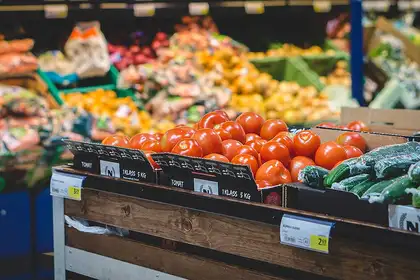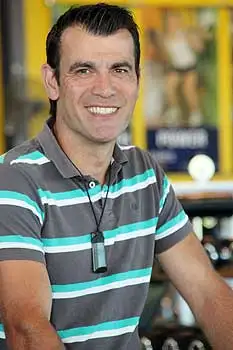
The Health Research Council of New Zealand is funding a feasibility study which will look at the validity, precision and acceptability of the tools used used to measure fruit and vegetable consumption among Māori.
Dr Geoff Kira, Ngā Puhi, from Massey University’s School of Health Sciences has been awarded nearly quarter of a million dollars to carry out a feasibility study focusing on the tools used to measure fruit and vegetable consumption among Māori.
The study, entitled He Pātaka Marohi - the feasibility of novel and conventional instruments, will be carried out over two years, and is funded by a Feasibility Study grant from the Health Research Council of New Zealand.
Dr Kira says the conventional assessment of fruit and vegetable consumption is from self-reporting, which is prone to error. “Our team proposes to undertake a study to ascertain the validity, precision, and acceptability of multiple novel and conventional instruments that measure fruit and vegetable consumption,” he says.
“We want communities to consume more fruit and vegetables, so we need tools that can measure the change in eating habits. We’ve found that although most tools are scientifically valid, they have problems showing practical change,” Dr Kira says.
“This information will help us develop our next research funding application. That project will be to develop and test a local sustainable food network to help families living in poverty, to eat healthier food. Our previous work, also funded by the Health Research Council, has shown that those families will consume almost all fruit and vegetables if we remove the barriers to healthy eating.”

Dr Geoff Kira, School of Health Sciences.
The study will be conducted with 15 Māori participants, who will undergo two weeks of initial assessment. Study participants will be from households that have used a food bank in the past 12 months, and will be recruited from the local community of Te Wakahuia Manawatū Trust, a Māori health social services agency, in Palmerston North.
“After a short break of two weeks, they will undergo assessment for two weeks, whilst receiving an intervention of free fruit and vegetables. This study will provide useful technical information for researchers and clinicians and valued culturally-appropriate instruments for application with Māori and those living in poverty,” Dr Kira says.
“At the same time, we will be able to gauge acceptability and appropriateness of the instruments from a high-priority health population group. The feasibility will have impact on engagement with Māori communities and the intended full study with Māori.”
College of Health Pro Vice-Chancellor Professor Jane Mills congratulated Dr Kira and colleagues on the funding success. “This exciting study has the potential to provide a very useful, validated tool to measure the consumption of fruit and vegetables in a culturally safe way. Improving the health and wellbeing of Māori individuals, whānau and communities is fundamental to the mission of Massey’s College of Health. I’m excited and delighted that the Health Research Council have agreed to fund this important, pragmatic study which will generate findings that can be utilised in a range of settings.”
Dr Kira and research colleagues Associate Professor Rozanne Kruger from Massey’s School of Sport, Exercise and Nutrition, and independent scientist Dr Anette Kira are grateful for the continued partnership with Te Wakahuia Manawatu Trust.
“Their contribution has helped enormously towards the success of our work, particularly one of their social work staff, Venessa Pokaia. Venessa was our project manager previously and we hope once again she’ll step into that pivotal role,” Dr Kira says.
Dr Kira is a senior Māori health researcher in the fields of exercise, nutrition and sleep and applying them for optimal health and wellness. He specialises in applying mātauranga Māori and science to obtain the most promising outcomes.